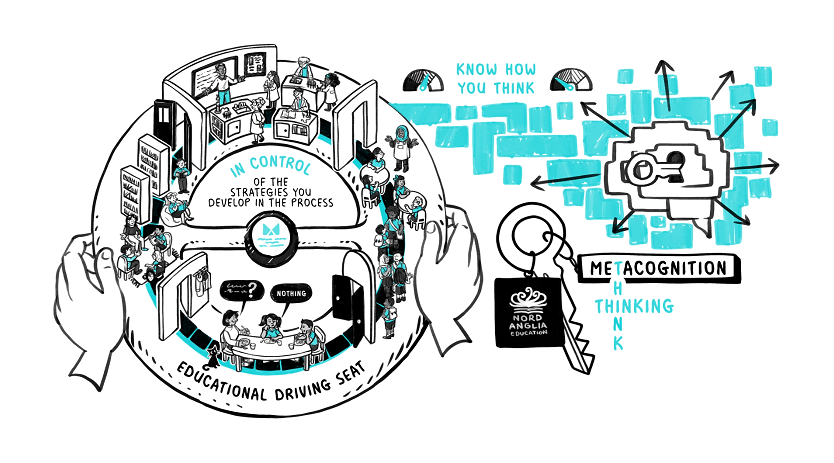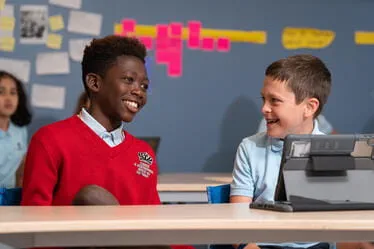

Educators define 'metacognition' as the process we all use to better understand our own thinking processes and problem-solving strategies. In the simplest terms it’s ‘thinking about thinking’ or being aware of how we learn best. Metacognitive skills are the techniques we use to learn and to understand ourselves as learners.
Why is this important? Because research shows that teaching children these skills in school can help children get ahead. In fact, The Education Endowment Fund estimates these skills can equate to at least seven months of additional progress. This is one of the many reasons why Nord Anglia’s schools are helping students develop their metacognitive skills.
So how does metacognition work? There’s a three-step process that includes awareness, adaptation, and application.
Parents can help play an active role by reinforcing metacognitive processes at home. Try prompting reflection on what your child did when solving a problem, by role-modelling goal setting, or by sharing feedback on the steps you took to overcome a challenge.
We know that by developing students’ metacognitive processes we can help them become more aware of their own learning and take more ownership of the strategies they use to improvehow they learn.
Awareness, adaptation, and application can set children up for success, building their resilience, critical thinking, problem solving and self-awareness.
Want more on metacognition? See it explained in visual form here.